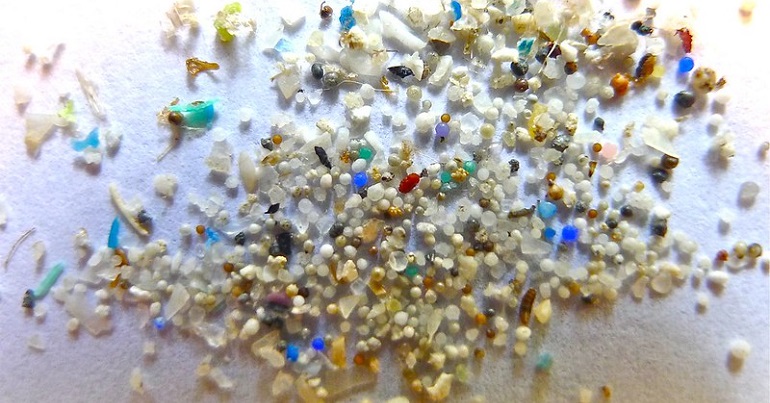New research reveals impact of microplastics on marine wildlife

New research has revealed the impact of microplastics on marine wildlife. In recent years public awareness of the plastic pollution problem has soared, but our understanding of how this impacts marine life is limited. 10 per cent of plastic produced globally ends up in the ocean.
To assess how microplastics affect marine life, researchers from Queen’s University Belfast (QUB) and Liverpool John Moores University looked specifically at hermit crabs, which play a vital role in balancing the marine ecosystem.
Hermit crabs take shells from snails to protect themselves, instead of developing their own. As hermit crabs grow in size, they must find a succession of increasingly large shells to replace those they have outgrown. Without these shells, hermit crabs would be unable to grow, reproduce and survive.
To assess how microplastics impact hermit crabs, the researchers divided hermit crabs between experimental tanks, half containing microplastics and the other half containing no plastics. After five days, the crabs were moved into low quality shells, while being provided with higher quality shells offering more protection.
The researchers discovered that when hermit crabs were exposed to microplastics, they became less likely to touch or enter new shells. Dr Gareth Arnott who led the research at QUB said:
Our research shows that exposure to microplastics can have important effects on animal behaviour. More specifically, in this case it had a detrimental effect on shell selection behaviour in hermit crabs. As this behaviour is vital for hermit crab survival and reproduction, there could be important long-term consequences.
Arnott continued:
These crabs are an important part of the ecosystem, responsible for ‘cleaning up’ the sea through eating up decomposed sea-life and bacteria…Additionally, commercially valuable species prey on hermit crabs, such as cod, ling, and wolf-fish. With these findings of effects on animal behaviour, the microplastic pollution crisis is therefore threatening biodiversity more than is currently recognised so it is vital that we act now to tackle this issue before it becomes too late.
PS. Bright Green has big plans for the future, but we need your input. Take 2 minutes to see what we’re planning and tell us your thoughts.
Image credit: Oregon State University – Creative Commons




Leave a Reply